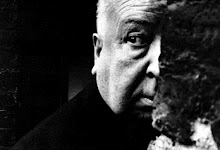Paper Abstract:
The film movement known as the Czech New Wave (1963-1968) exploded as a reaction against years of Communist oppression. A small group of filmmakers started making films that dealt with social issues and criticized the current system. Some directors were able to adapt to the government’s censorship, but Jan Nemec was not. His films, which avoid linear storytelling and focus more on abstract emotions like other films of the period, are all scathing and subversive, but his most controversial film is Report on the Party and the Guests. It got banned and was the downfall of his career, and he was eventually forced out of Czechoslovakia for many years. Nemec’s films are also evaluated in the context of the movement at large. He only made four films (three features and one documentary) during the Czech New Wave, but his rebellious spirit still endures in his work.
Paper Excerpts:
A chilling depiction of the dangers of conformity and a clear metaphor for the political situation in Czechoslovakia, Report on the Party and the Guests killed his career. “Antonin Novotny, the president of Czechoslovakia, went ballistic and the film was banned. It was released for a short period during spring of 1968 and was then locked in a vault again for the next 20 years” (Buchar 11). The government felt threatened by his films and grew paranoid. They panicked when they could not figure out what Martyrs of Love was about. In fact, Martyrs of Love is a poetic celebration of love, as the title implies, and has nothing to do with politics. After the controversy surrounding these films, the government fired him, and he was bullied out of the country in 1974. He roamed around Europe and then lived in the United States for twelve years before coming home in 1989. Recently, he enjoyed some success with 2001’s Night Talks with Mother, and he currently instructs documentary at the Film Academy (Buchar 29).
All in all, Jan Nemec played a vital role in establishing and expanding the Czech New Wave. His career was very brief, but his films have endured over the years. “Nemec has described his film style as one of ‘dream realism,’ and despite some major differences, this term can be applied to all three of his Czech features” (Hames 199). In each of his films, Nemec wanted to create a separate, timeless universe, one that avoided any connections with reality. Sadly, he was not able to avoid the harsh reality of his own life or the censorship of his career.
Monday, March 10, 2008
Subscribe to:
Post Comments (Atom)

No comments:
Post a Comment